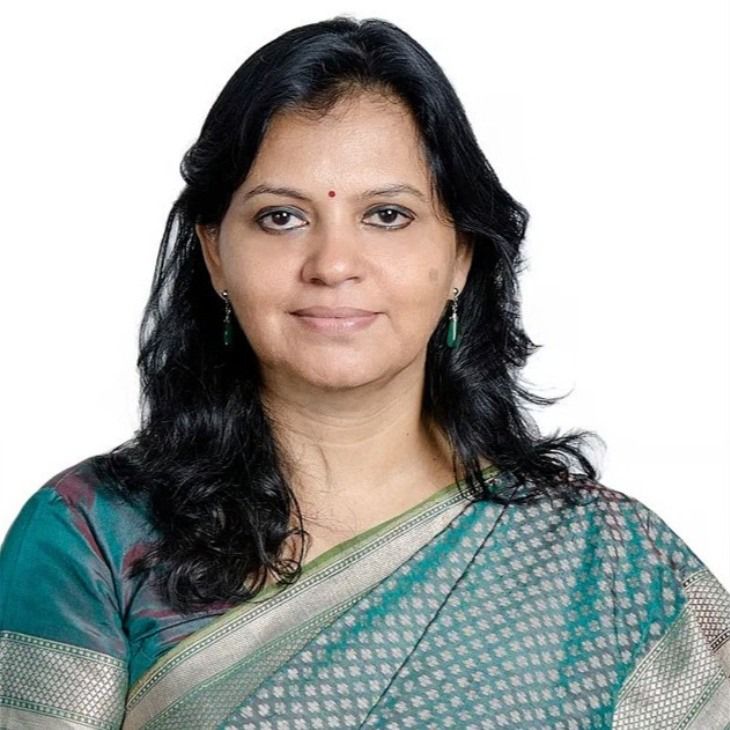- Set to boost excise revenues, even while the government promotes local production
- MML licensees assure that quality will be prioritized and will compete with mass market IMFL
- Margins will be tight, and success depends on efficient distribution, strong marketing, and retailer participation.
The Maharashtra government’s decision to introduce a new category of liquor, Maharashtra Made Liquor (MML), is set to transform the state’s alcoholic beverage landscape while increasing excise revenues. Industry experts say the move represents both fiscal foresight and a push to empower local manufacturers.
The Maharashtra liquor market is no stranger to innovation, regulation, and disruption. The MML policy is seen as a strategic attempt to bridge the gap between low-end IMFL and country liquor.
The rationale was straightforward: while premium IMFL and imported spirits dominate the higher price points, many local manufacturers were either dormant or underutilized. The government saw an opportunity to revive these units, create employment, and increase excise revenues. The MML category, pegged at ₹148.50 to ₹205 for a 180 ml pack, was positioned as a bridge offering, designed to be more affordable than IMFL yet higher in quality than country liquor.
Beyond the price, the policy introduced a nuanced excise structure. While IMFL attracts 450% duty on manufacturing cost, MML would be taxed at 270%, providing a margin buffer for manufacturers and retailers. At the time of announcement, government officials projected an incremental revenue target of ₹14,000 crore, on top of the existing ₹25,000 crore excise intake. However, industry insiders remain cautious about whether these numbers are achievable, citing consumer behaviour, market fragmentation, and distribution challenges.
MML is going to redistribute market-share: Sadanand Bapat
According to Sadanand Bapat, Managing Director of Associated Blenders Pvt. Ltd., the new policy is a strategic reform that aligns revenue generation with industrial growth. “The government will definitely benefit with increased revenues, there are no two opinions on that,” said Bapat. “Even if MML doesn’t perform fully as expected, collections will still be higher than before. The estimated additional revenue is around ₹3,000 crore over and above existing excise collections.” Maharashtra’s excise revenue was ₹25,468 crores from April 2024 to March 2025.

Maharashtra’s IMFL market currently stands at around 30 lakh cases per month. Bapat estimates that once all MML producers become operational, the new segment could account for 8–10 lakh cases monthly, effectively redistributing a share of the existing market rather than creating an entirely new one.
“It’s not an additional market, it’s a redistribution,” he explained. “Out of the total 30 lakh cases, about 8–10 lakh will now fall under MML, and 20–22 lakh under IMFL. Naturally, some IMFL players are worried, but this policy also opens up opportunities for local manufacturers to compete and grow.”
Initially, about 15 licensees are expected to enter the MML space, though the industry anticipates that only five or six major players will eventually dominate. The market, experts believe, could stabilise once consumer acceptance grows.
Grain-based liquor
The MML category, notified under the state’s amended excise regime in June 2025, introduces a grain-based liquor segment that can only be produced by Maharashtra-based manufacturers. Each MML brand must be registered locally, and units must have at least 25% shareholding by state residents. The aim, officials say, is to revive underutilised potable liquor license (PLL) units, encourage local production, and create employment.
Under the new structure, MML will be treated as a distinct type of Indian Made Foreign Liquor (IMFL), but with a crucial difference. It must use rectified spirit produced within the state and will carry a lower excise burden.
As per the excise department, if the manufacturing cost of IMFL is up to ₹260/- per bulk litre, the excise duty is 450 % of the manufacturing cost or ₹750/- per proof litre whichever is higher. If the manufacturing cost exceeds ₹260/- per bulk litre, the duty is 300 % of the manufacturing cost.
Assuming a manufacturing cost of ₹400 per litre, IMFL would cost ₹2,200 (including ₹1,800 in excise), while MML would retail at about ₹1,480 (including ₹1,080 in excise). MML products will be priced between ₹148.50 and ₹205 per 180 ml bottle, making them far more affordable than comparable IMFL brands.
Consumer Outlook and Perception
A major factor in MML’s success will be how consumers perceive the new category. “Let me tell you, MML is nothing but IMFL — it’s the same thing,” Bapat stressed. “The only difference is pricing. Consumers can expect the same quality at a more affordable rate.”
MML will be sold only through licensed retail (FL-2) and hotel/restaurant (FL-3) outlets, not country liquor shops — ensuring quality control and regulatory oversight.

The MML initiative stems from a report by a committee led by former Additional Chief Secretary Valsa Nair, formed in January 2025 under the Devendra Fadnavis-led government. The Cabinet approved the recommendations on June 10, followed by a government resolution outlining operational guidelines.
The move also revives an earlier attempt to promote grain-based distilleries dating back to 2007, which was shelved after legal challenges. This time, however, the government has built stronger structural safeguards and economic rationale.
Beyond revenues, the new policy ties into Maharashtra’s goal of boosting local manufacturing and employment. With over 70 licensed potable liquor units in the state, of which 22 are defunct and 16 operate only as retailers, the new framework could rejuvenate many idle facilities.
A Model for Other States?
While some observers see shades of Tamil Nadu’s and Rajasthan’s liquor models, Bapat believes Maharashtra’s approach is more innovative. “People say it’s a mix between Tamil Nadu and Rajasthan’s policies, improved to suit Maharashtra’s needs,” he said. “But this is a well-drafted, homegrown framework. If it succeeds, other states will surely follow.”
As MML hits retail shelves, its dual promise, to bolster government revenues and support local industry, is being closely watched. For now, optimism runs high among policymakers and producers alike.
“Everyone — from consumers to manufacturers to the government, is eagerly awaiting the results,” Bapat concluded. “It’s a big reform, and if implemented well, it will redefine Maharashtra’s liquor industry.”
New Avenue of Growth for Domestic Distilleries: Karan Kalani
Echoing similar views is Karan Kalani, Director of Deejay Distilleries Pvt Ltd. He believes that the policy is poised to transform the state’s spirits market, opening a new avenue of growth for domestic distilleries and offering a structured, quality-driven alternative to illicit and imported low-end products.

The new MML category will help the state achieve multiple objectives from curbing illegal inflows of liquor to improving consumer access and strengthening regional industry participation. “The new category will offer high-quality products on par with IMFL, but at a more affordable price point. This will curb illegal liquor entering from other states and give consumers a safe, reliable, and good-quality alternative,” Kalani said.
Market Realignment
“The affordability factor will drive this category. Earlier, consumers seeking lower-priced options had to depend on country liquor or unregulated sources. Now, with MML, they will have a legitimate, high-quality product,” Kalani noted.
The government currently earns around ₹25,000 crore in excise revenue, and expects an incremental ₹3,000 crore once MML stabilizes. Kalani believes this is achievable. “The revised duty structure has increased prices for popular IMFL brands like Imperial Blue, Royal Stag, and McDowell’s No.1. Simultaneously, MML will contribute significantly to revenue growth as production and distribution expand.”
Transition Phase, Not Chaos
While the market is witnessing a degree of flux following duty revisions, Kalani views this as part of a natural adjustment. “It’s not a chaotic situation—it’s a transition phase. The entire industry is undergoing realignment. In the next six to eight months, sales and consumer preferences will stabilize as new players enter the market and distribution strengthens across Maharashtra.”
He also observed that while some consumers are “downgrading” due to price increases in IMFL, the MML segment provides a quality downgrade option, far superior to illicit or country liquor, thus retaining consumers within the formal sector.
The MML policy is expected to give a strong growth impetus to regional distilleries, many of which previously found it difficult to compete with national or multinational brands. “This policy levels the playing field. Local distilleries now have a fair chance to grow within Maharashtra without having to battle MNCs directly,” said Kalani.
Kalani believes the trade will also benefit from the emergence of MML. “Retailers will find the segment attractive, selling a ₹150 product instead of ₹80 boosts turnover and income. Once availability improves, MML products will gain rapid acceptance across retail channels,” he said.
He also emphasized that each manufacturer will have flexibility in crafting their blends. “Every company will have its own recipe and style. Overall, the category will deliver a product at par with popular IMFL in terms of taste and quality,”
Kalani expects MML to record the highest growth rate in Maharashtra’s alcobev sector over the next year. “We expect initial sales of around 5 lakh cases, scaling up to 7–8 lakh cases as more producers come onstream. The first year will be about consolidation — experienced players will strengthen their presence, and the ecosystem will stabilize,” he concluded.
Marketing and Consumer Education will be Crucial: Vishal Jaiswal
According to Vishal Jaiswal & Vaibhav Jaiswal, Managing Directors of Konkan Agro Marine Industries and a senior industry observer, the policy has been carefully formulated after studying models in neighbouring states. The MML category is positioned between Indian Made Foreign Liquor (IMFL) and country liquor and targets the mid-market segment, offering better quality at affordable prices. “They wanted to increase the price of regular segments and at the same time offer an alternative. So, they decided to introduce a mid-segment category,” Jaiswal explained.

He added that the move is also part of a broader effort to revive the state’s manufacturing units. “Many units were shut for ages. The government was not getting any revenue from them. This policy aims to revive those units, create employment, and generate state income,” he said.
“The government has fixed the minimum segment price at ₹148.50. If we want to match the quality of existing IMFL products, the price has to be in the ₹160–₹180 range,” Jaiswal said. He emphasized that all MML products will be made from grain spirit, not molasses, ensuring a smoother and higher-quality profile. “Those who are brand-conscious and want to establish a reputation will definitely focus on quality,” he added.
However, Jaiswal also pointed out that marketing and consumer education will be crucial. “Manufacturers will have to invest in trials and awareness — to get consumers to taste and trust this new category. This is a holistic move, boosting quality, reviving industries, and strengthening the state’s revenue base,” Jaiswal summed up.
Fraught with challenges for distributors, retailers, and even some manufacturers: Pradeep Lulla
Giving a contrarian view is Pradeep Lulla, President of the Maharashtra Wine and Retailers Association. “When the MRP changed in June, a 180 ml whisky that cost ₹160 jumped to ₹220 — a 37.5% increase overnight. Distributors lost 3–4% margins instantly, and low-end consumers were priced out. Many shifted to country liquor, which saw a growth during that period.”

Lulla warns that the MML policy may not generate the initially projected ₹14,000 crore in incremental revenue. He predicts a modest increase of ₹1,000–2,000 crore, mainly due to consumer segmentation and brand loyalty.
“Consumers will not switch entirely from established IMFL brands. Some will reduce frequency, while others will revert to cheaper options. Retailers and distributors will adjust accordingly, cutting stock, rationalizing infrastructure, and tightening credit.”
He also flags distribution and consumer experience challenges. MML is restricted to Maharashtra, which fragments brand exposure. Travelers or consumers moving to other states won’t find their preferred MML brands, potentially eroding loyalty.
Lulla highlighted financial constraints. He said if the manufacturing cost for a 180 ml MML bottle is ₹21.43, the excise duty per bottle is going to be ₹57.86 and the cost of the 48-bottle case will be ₹2,777. “Margins will be tight, and success depends on efficient distribution, strong marketing, and retailer participation,” he says.
In short, MML could redefine Maharashtra’s liquor market. But whether it becomes a game-changer or a market correction remains to be seen. The coming months will test the policy’s design, the resilience of distributors, and the willingness of consumers to embrace a new mid-tier category.
